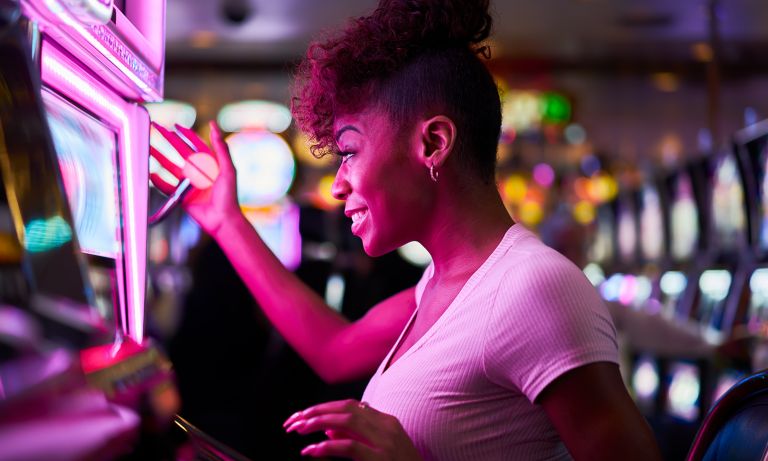
When Ann Klinestiver, a high school English teacher in Milton, W.Va., was first diagnosed with Parkinson's disease, she was desperate for anything that might calm the tremors caused by the disease. She found relief in a new drug called Requip.

'At first, the drug was like a miracle,' Klinestiver says. 'All my movement problems just disappeared.'
Gambling Took Over My Life
- Has gambling affected personal life negatively? Has gambling ever affected wellbeing or that of dependents? Has one’s reputation been damaged as a result of gambling? Has one ever been tempted to steal or do something illegal to finance gambling? Has one ever borrowed money to gamble? Has one ever felt like gambling is a good way to celebrate.
- Im 38, my birthday is in a few weeks. Every year i turn my phone off. Some years i leave it off for a month or 2. I have been depressed for as long as i can remember. Sometimes i think that im so worthless that im hurting the world by not killing myself. I for some reason think that im to scared to take my life. So i am just here taking up space.
- And by the fall of my sophomore year at the University of Miami, the game had taken over my life. In fact, by early October, I was convinced that I was psychologically addicted to video-gaming.
Over time, however, Klinestiver needed higher and higher doses of the drug in order to ease her symptoms. That's when she became a gambling addict. Although she'd never been interested in gambling before, Klinestiver was suddenly obsessed with slot machines. Every day, she would drive to the local dog racing track and play slots until 3:30 in the morning. After a year of addictive gambling, Klinestiver lost more than $200,000.
Take my most recent experiences of a gig, which consisted almost exclusively of watching the band refracted through the tiny screens of a thousand smartphones held aloft. However, Gambling addiction which I developed from about 19 has destroyed everything in my life and I’m now 31. It has destroyed my personality, my relationships, my hope for the future and of course my finances. I could literally write an essay on gambling and how it has destroyed my life. I now find myself with no hope and in despair.
Klinestiver's medication worked by imitating the effects of dopamine, a neurotransmitter in the brain. Parkinson's is caused by the death of dopamine neurons in brain areas that control bodily movement. But dopamine also plays a central role in the pleasure centers of the brain, influencing how we see the world and respond to it. Recent medical studies have found that anywhere from 3 to 13 percent of patients on the kind of medication Klinestiver was taking develop severe gambling addictions or related compulsions. In early 2006, Klinestiver was taken off Requip. Her tremors worsened, but her gambling addiction vanished. 'I haven't gambled in 18 months,' she says. 'I still think about the slots, but the obsession isn't there.'

Stories like Klinestiver's, and research into dopamine's role in the brain, are helping neuroscientists understand the temptation of gambling and the scourge of gambling addiction. This research may also change the way we see casinos, and help shift the debate over whether the government should further regulate slots, roulette wheels, and other games of chance. From the perspective of the brain, gambling has much in common with addictive drugs, like cocaine. Both work by hijacking the brain's pleasure centers -- a lure that some people are literally incapable of resisting.
'Gambling games grew up around the frailty of our nervous system,' says Read Montague, a professor of neuroscience at Baylor University. 'They evolved to exploit specific hiccups in our brain.'
In recent years, gambling has spread across America, with gambling generating revenues of $2.9 billion in New England in 2006. The question of gambling is of particular relevance for Massachusetts. Last month, the town of Middleborough voted in support of a massive new gambling complex, to be built on lands owned by the Mashpee Wampanoag tribe. Governor Deval Patrick is currently considering proposals to expand gambling across the state, and several developers are looking at sites in Boston.
Gambling Has Taken Over My Life
The growth of the gambling industry has been accompanied by a large amount of new scientific research explaining the effects of gambling on the brain. The neural circuits manipulated by gambling originally evolved to help animals assess rewards, such as food, that are crucial for survival. Dopamine is the neurotransmitter involved with the processing of these rewards. Whenever we experience something pleasurable, such as winning a hand of blackjack or eating a piece of chocolate cake, our dopamine neurons get excited. These neurons help the brain learn about the pleasure, and attempt to predict when it will happen again.